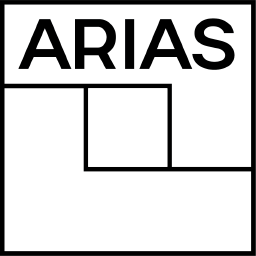
AHK Culture Club | May 21st, 2024
In this session, researchers Janine Armin and Mariana Fernández Mora invited participants to imagine slow, non-extractive, and anticolonial ways of engaging with AI technologies. Rather than seeing slowness as merely a temporal quality, the session explored it as a mode of being—one that fosters critical thinking, collective knowledge, and perspectives that decenter human dominance.
The discussion drew on philosophical and Indigenous perspectives, weaving together ideas from Yuk Hui’s readings of Gilbert Simondon—where acceleration is not an endpoint but one phase within a broader intensity of difference. The group also engaged with the works of Leanne Betasamosake Simpson, Robin Wall Kimmerer, and Max Liboiron, who emphasise relational and land-based approaches to knowledge.
A key part of the session was a collective reading of Anna Lowenhaupt Tsing’s The Mushroom at the End of the World: On the Possibility of Life in Capitalist Ruins, which set the stage for a speculative exercise in AI myth-making. Participants were asked to bring a personal or ancestral story—one that shaped their understanding of creation—to serve as inspiration. Using these narratives, the group collaboratively reimagined AI through speculative myths, questioning dominant technological paradigms and envisioning alternative futures.
The session concluded with reflections on the stories created, highlighting how shifting how we read and interpret technology might ultimately change how we build and relate to it. Over a shared lunch, participants continued to discuss their insights, reinforcing the session’s ethos of collective knowledge-making and slow, thoughtful engagement with AI.







Participants: Alessandra Tom, Carlo De Gaetano, Carolyn Strauss, Nienke Scholts, Natalia Sanchez, Orestis Kollyris, Ruohong Wu, Sabine Niederer, Somaya Ben Allouch, Zachary Formwalt.




In the spring of 2024, the Slow AI project launched a series of material-based research workshops that took the form of Material Playgrounds, borrowing the term and building on the work of Socrates Professor Erik Rietveld. These workshops aim to collectively explore different ways of engaging with AI through material investigations that allow for playful exploration and experimentation.
Slow AI focuses on developing strategies to address colonial and extractive histories embedded in current AI systems by applying the concept of ‘slowness’ to a fast technology. It is a project initiated by artist and researcher Mariana Fernández Mora and a collaboration between the Visual Methodologies Collective (HvA) and the Sandberg Institute (GRA). In collaboration with the Artificial Worlds group at ARIAS Amsterdam and generously funded by the Centre of Expertise Creative Innovation, Slow AI aims to contribute to a more equitable and sustainable technological landscape.
For updates on the research and public events, subscribe to the ARIAS Artificial Worlds newsletter.




